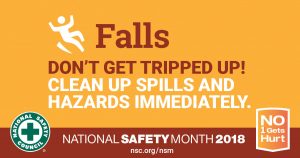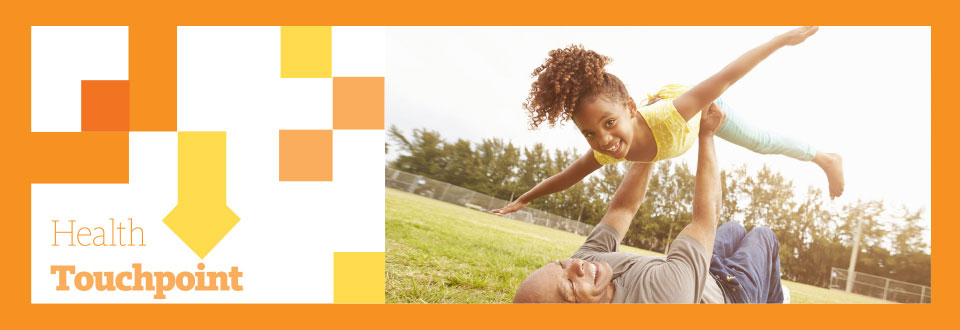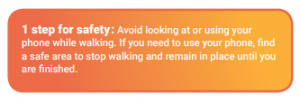
Slips and falls aren't typically thought of as a serious risk to our health, but they can be deadly. Falls are the third leading cause of unintentional injury-related deaths for all ages and the number one cause of death for those 65 and older, according to injuryfacts.nsc.org. The National Safety Council has provided some preventative that we can take to avoid falls and distracted walking.
How to Prevent Falls
Take these simple steps to prevent falls both at home and while out and about:
- Remove clutter, including electrical cords and other tripping hazards from walkways, stairs and doorways.
- Install nightlights in the bathroom, hallways and other areas to prevent tripping and falls at night.
- Always wear proper footwear and clean up spills immediately.
- Place non-slip adhesive strips on stairs and non-skid mats in the shower and bathroom.
- For older adults, install grab bars near showers and toilets and install rails on both sides of stairs. Older adults can also take balance classes, get their vision and hearing checked each year and talk with their doctors and pharmacist about fall risks from medication.
Distracted Walking - A Serious Risk
Today, nearly everyone has a cell phone and consequently distracted walking has become a serious risk. One study, published in the Journal of Safety Research, found that over a 10-year period, distracted walking was responsible for more than 10,000 serious injuries.
- Avoid cell phone use while walking, especially near crosswalks - talk with your friends and loved ones about this risk as well.
- Pay special attention in busy areas, such as airports and shopping centers, and even your own house - more than half of distracted walking incidents happen at home.
- Avoid other distracted walking risks, such as listening to headphones, when walking near intersections and other busy areas.
- When driving, look carefully for pedestrians distracted by their phones - slow down and pay special attention in school zones.
Source: National Safety Council

